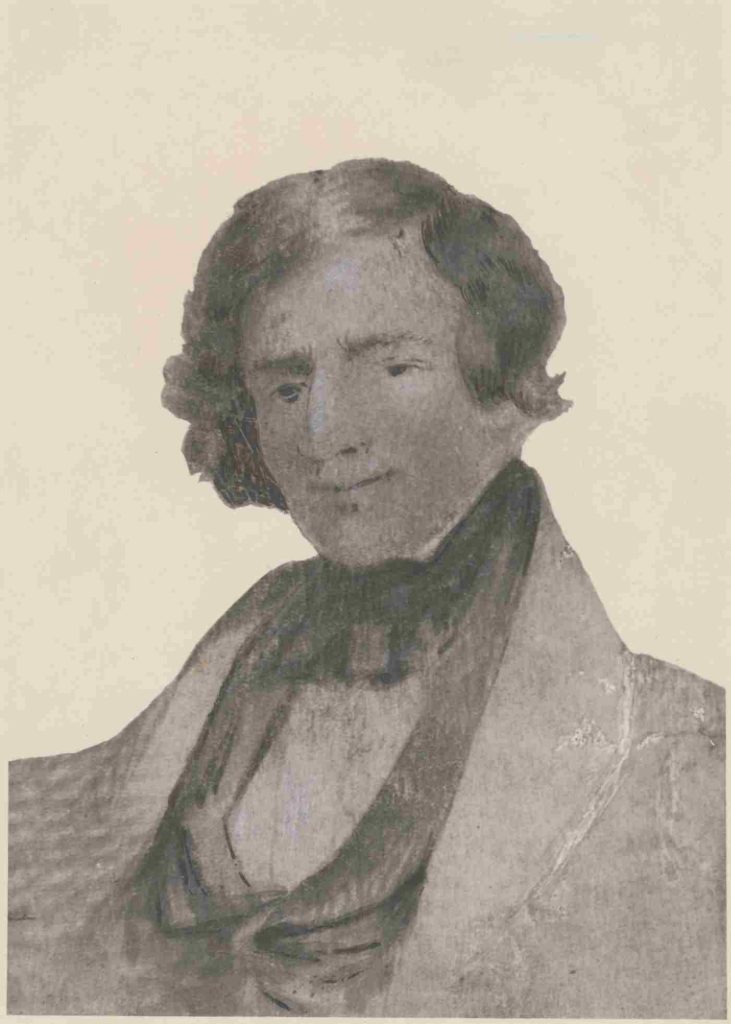
Jedediah Strong Smith was one of the most famous fur trappers and explorers of the American West. He was born in Jericho, New York, in 1799. Around 1810, he and his large family relocated to Erie County, Pennsylvania and then on to Green Township in Ohio by 1817.
In 1822, he entered the Rocky Mountain fur trade and quickly rose to prominence as a skilled woodsman, trapper, and resourceful leader. Smith’s earliest adventures began when he joined the Henry & Ashley Fur Company. He soon made a name for himself as a fearless explorer and skilled trapper, despite a notorious 1823 encounter with a grizzly bear in South Dakota, which left him severely injured but undeterred. In 1824, he led a group of men over the Continental Divide and is credited with the “effective discovery” of South Pass, a natural corridor through the Rocky Mountains that would later become a crucial segment of the Oregon Trail. Being one of the first parties to trap in the Green River Valley, that spring brought a great harvest of beaver pelts.

His leadership skills did not go unnoticed and Ashley took him on as a partner when Henry retired. When Ashley decided to run for a higher political office, Smith, along with William Sublette and David Jackson, stepped up to run the fur business. In 1826, Smith embarked on a groundbreaking journey westward, becoming the first American to reach California by an overland route. His trek across the Mojave Desert and through Southern California into Mexican-controlled Alta California was fraught with hardship, but he managed to cross the Sierra Nevada and ultimately arrived in California. This expedition eventually would mark the first documented successful crossing of the Sierra Nevada and entry to California from the east by a nonindigenous person.
Smith’s expeditions continued to push boundaries. After being expelled from California by Mexican authorities, he journeyed north into what is now Oregon, mapping large parts of the region and establishing fur-trapping routes. His journeys through the rugged Cascade Range, along the Pacific shores of today’s Oregon, and into the Columbia River Basin provided invaluable information to American cartographers and settlers who would later migrate to the Pacific Northwest. Thus, Smith became the first to traverse the entire length of modern-day California.
Jedediah Smith faced many challenges, from harsh environments and lack of resources to hostile encounters with Native American tribes and rival trappers. He played an important role during the 1823 incidents with the Arikara War. At the onset of the conflict, Smith was on the beach and directed men there with him. After the initial fighting, Smith was sent to recruit Henry’s men in the Yellowstone region, then served as a captain for a company of Ashley’s fighters when the US Army stepped in to discipline the Indians. Smith later had disastrous run-ins with the Mohave and the Kelawatset people in which several trappers lost their lives. Yet Smith continued his travels, often driven by a sense of religious mission and a commitment to spreading American knowledge of the West.
Smith’s contributions to American expansionism were significant. The trails he blazed and the maps he helped produce were crucial for subsequent explorers and settlers. His discoveries of routes like the South Pass were instrumental in establishing the Emigrant Trails and later roads that helped fuel a westward movement of thousands who would settle in Californian and Oregon.
Smith’s life was cut tragically short in 1831 when he was killed by warriors, probably Comanches, while scouting for water near the Cimarron River on the Santa Fe Trail. Although his life ended early, Smith’s legacy as a pathfinder and explorer continued to inspire. Today, he is celebrated for his role in expanding America’s frontiers, and his name graces landmarks, trails, and even a state park in California, honoring his impact on US history and the exploration of the West.
RECOMMENDED READING
Dale Morgan, Jedediah Smith and the Opening of the West (Indianapolis, IN: The Bobbs-Merrill Company, Inc., 1953).
Barton H. Barbour, Jedediah Smith, No Ordinary Mountain Man (Norman, OK: University of Oklahoma Press, 2009). Buy now.
